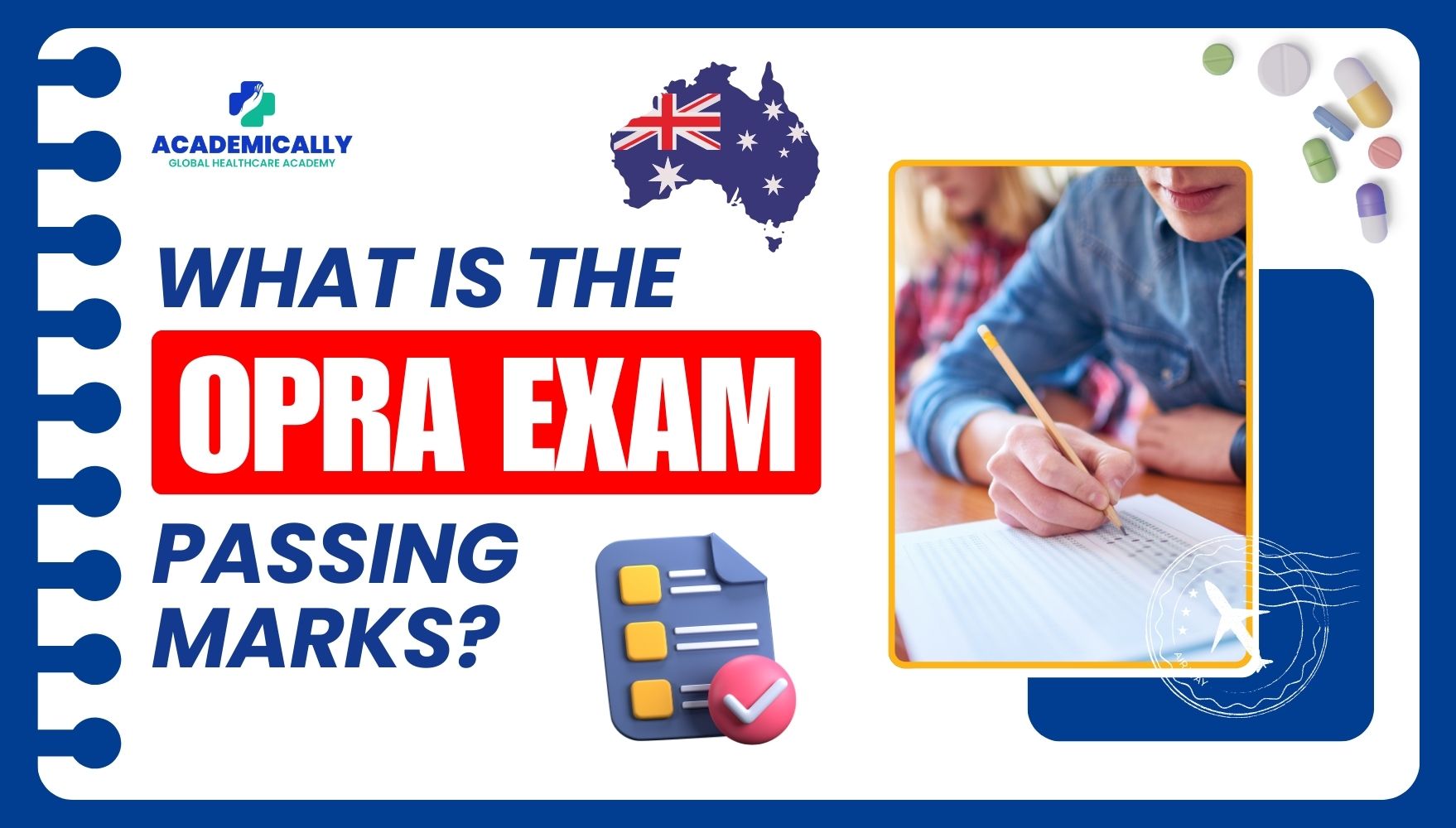What is the OPRA Exam?
The OPRA Exam stands for Overseas Pharmacists Readiness Assessment. It is for overseas-trained pharmacists who want to become registered in Australia.
What is the OPRA Exam Format?
The new OPRA exam format is as follows:
- Type: Multiple Choice Questions (MCQ)
- Number of Questions: 120
- Duration: 2.5 hours
- Mode: Computer-based exam
The exam covers five main content areas:
- Biomedical Sciences – 20%
- Medicinal Chemistry and Biopharmaceutics – 10%
- Pharmacokinetics and Pharmacodynamics – 10%
- Pharmacology and Toxicology – 15%
- Therapeutics and Patient Care – 45%
With nearly half of the paper focused on Therapeutics and Patient Care, it’s clear that real-world pharmacy practice is at the core of this assessment.
Now comes the tricky part, the scoring system. This is where most people got confused.
What’s the New OPRA Scoring?
The Australian Pharmacy Council(APC) has introduced the Rasch Methodology for the OPRA exam. Unlike the usual percentage-based scores, this one works a bit differently:
- It doesn’t just count how many questions you got right.
- It also looks at how hard those questions were.
- So two people with the same number of correct answers can still get different results based on which questions they answered correctly.
Basically, your overall performance matters more than your exact score.
What Is the OPRA Exam Passing Marks?
There’s no fixed percentage or “cut-off” like 50% or 60%. Instead:
- You’re assessed as successful or unsuccessful based on whether your overall performance meets the required competency standard.
- Your result report won’t show your raw score.
- You will, however, receive feedback for each content area, so you can see where you did well and where you need improvement.
Even if you perform well in some sections, your final result depends on your overall performance, not individual section scores.
What If You Don’t Pass the OPRA Exam?
If your result says “Unsuccessful”, don’t get discouraged.
- You’ll need to re-register and pay to sit the exam again.
- There’s no option to retake only specific sections, you’ll have to attempt the full paper.
- Use the feedback from your previous attempt to identify your weak areas and work on them before your next try.
How To Pass the OPRA On The First Attempt?
To pass the OPRA Exam on the first attempt, enroll into Academically’s OPRA Preparation Course. By joining this course you will get
- Live and recorded OPRA Exam video tutorials
- Study handouts, mock tests, and final OPRA exam grand test
- Extended OPRA course trainer access
- Adaptive AI-driven OPRA exam mock tests according to Rasch methodology
- One-on-one feedback sessions with the OPRA exam trainer
- Exclusive tips on approaching the new pattern of OPRA exam for international pharmacists
All this would lead you to passing the OPRA Exam on the first attempt. What are you waiting for, contact us today and begin your journey to Australia.

Final Words
To sum it up, there’s no OPRA Exam passing score. Instead, your result depends on how well you’ve demonstrated the required level of competency overall. The Rasch scoring system may feel unfamiliar, but it’s designed to make the exam fair for everyone, regardless of the version of the paper.
So if you’re preparing for the OPRA exam, focus on understanding the concepts, practicing MCQs, and especially strengthening your grip on Therapeutics and Patient Care. Don’t worry about chasing a number, aim for a strong overall performance.
If you need any resource or guidance to take the OPRA Exam, fill up this form and our expert team will contact you.






